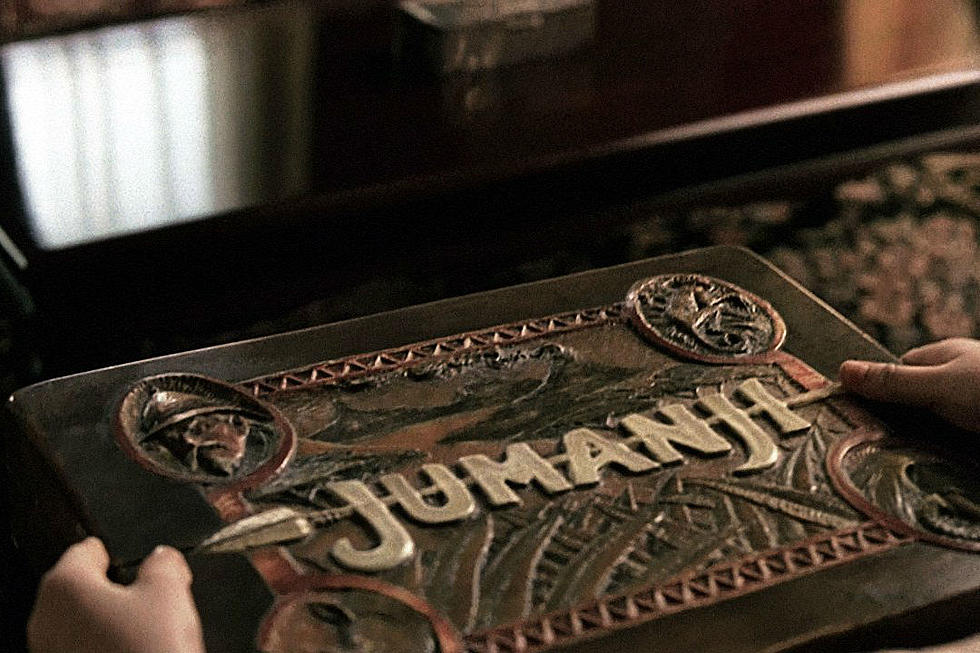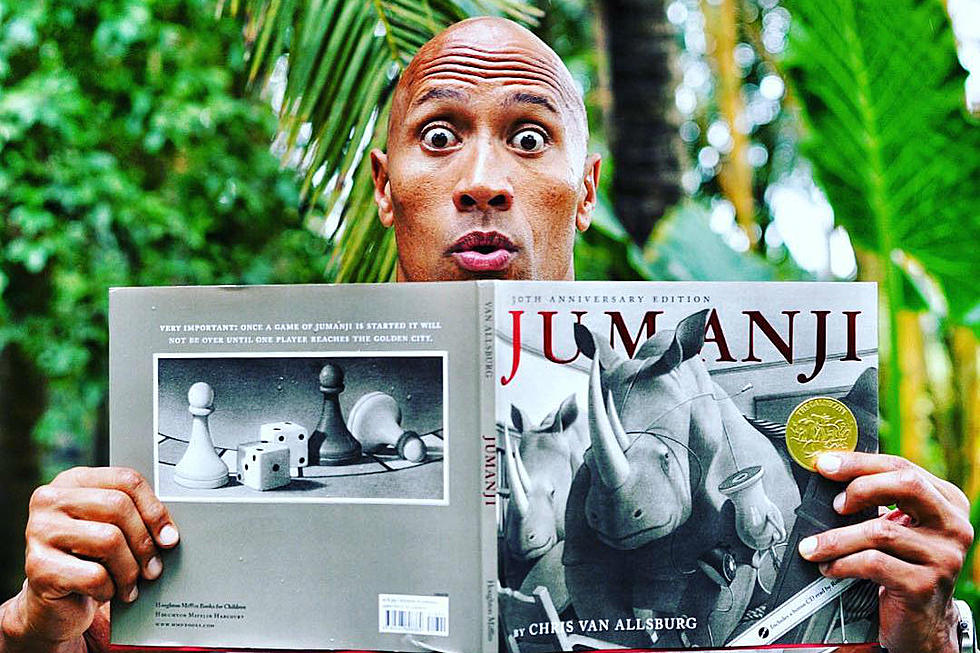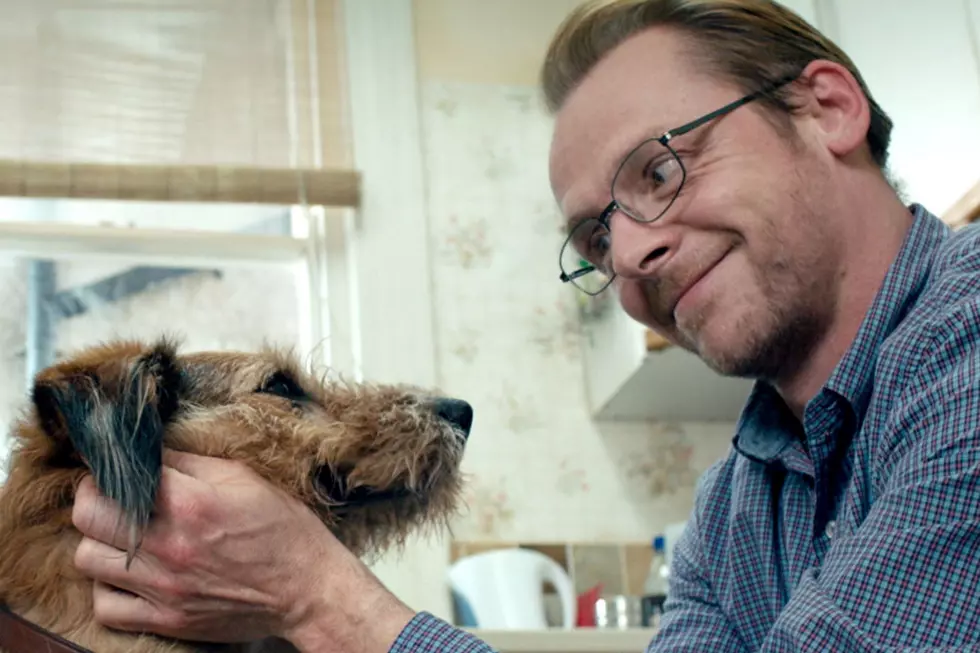
Remembering Shelley Duvall’s ‘Faerie Tale Theatre’
It's now common practice for studios to put a spin on classic fairy tales like Snow White and Sleeping Beauty, delivering the beloved and familiar stories with a twist. But way back in the 80s, Shelley Duvall was ahead of the curve, delivering quirky, dark, comedic and often bizarre retellings of classic fairy tales on her oft-forgotten Showtime series 'Faerie Tale Theatre,' in which she employed the service of well-known friends like Paul Reubens, Jeff Bridges, Helen Mirren, and even the recently departed Robin Williams. The series ran for six seasons and covered everything from popular stories like 'The Little Mermaid' and 'Cinderella' to lesser known tales like 'The Dancing Princesses.'
For those fortunate (or spoiled, whatever) enough to have cable as children, Shelley Duvall's 'Faerie Tale Theatre' was a charming and haunting mainstay -- an alternative to cartoons for those of us who were already aware that we were a little .... well, a little weird. The inaugural episode debuted in 1982, and while I was too young to have experienced it when it first aired, I was old enough to watch the show in syndication on the Disney channel, where an edited version of that first episode -- 'The Frog Prince' starring Duvall's 'Popeye' co-star Robin Williams -- aired alongside all 25 of the other episodes, which would later hit VHS and find themselves right at home alongside my treasured copies of Disney animated classics.
Tim Burton directed the Aladdin episode, and Francis Ford Coppola helmed the story of Rip Van Winkle.
From that first episode, you knew 'Faerie Tale Theatre' was something different. Like modern kids' entertainment, the episodes were smartly geared toward both children and adults, with plenty of humor for both. 'The Frog Prince' episode was written and directed by Monty Python veteran Eric Idle, and featured the comedic genius of Teri Garr as a snobbish, egocentric princess and Robin Williams as the titular Frog Prince, who must charm his way to the magical kiss that will restore him to his human form. Williams spends most of the episode in green tights and wearing a frog's head, appearing in miniature thanks to some early special effects work that seemed rather clever at the time -- and upon revisiting the episodes, still does. His frenetic energy is toned down a touch, but his rapid wit and improvisational comedic style are present as he makes quite an impression on the obnoxious princess and her family. Of all the Williams roles we've been remembering over the last week, this is one that seems to have been lost in time.
'The Frog Prince' set the tone for the series to follow, as the cast list was filled with insanely awesome names: Paul Reubens as Pinocchio, Liza Minnelli as a princess, Mick Jagger an a Chinese emperor, Carrie Fisher as Thumbelina, Billy Crystal as one of the Three Little Pigs. And that's not even the half of it: Jeff Bridges, Gena Rowlands, Elliott Gould, Anjelica Huston, Christopher Reeve, Jeff Goldblum, Matthew Broderick, and many, many more all joined the cast for 26 episodes of fairy tales. It was these names that kept parents interested in watching alongside their children, although as a wee movie nerd, I was just as thrilled to see Princess Leia and Pee-wee Herman show up in these episodes, hosted by the beautiful lady from 'Popeye' and 'The Shining.' You may ask yourself what a small child was doing watching 'The Shining,' but my parents didn't really restrict my viewing habits. You have them to thank for my career.
It wasn't just the cast list that had the older crowd interested: Tim Burton directed the Aladdin episode, and Francis Ford Coppola helmed the story of Rip Van Winkle. The sets were traditionally constructed, and inspired by artists like Edmund Dulac and Gustav Klimt.
Of course, as a child, I didn't know any of this. What I knew was that this show was weird and I was into it. Prosthetics and practical effects (with some sparing use of CG) made every character and setting just slightly off from fantastical, reminiscent of the David Lynch or Werner Herzog dream logic approach -- this is a world or a reality you recognize, but not quite. The costumes were elaborate enough to make you feel like you were watching something with some real maturity behind it, like you were sharing a secret with the grown-ups.
An episode like 'Rapunzel' begins with Jeff Bridges stealing radishes from a witch's garden for Duvall, who plays his pregnant, craving wife. We know the traditional story goes something like: the witch will take Rapunzel and raise her in a tower as her own daughter, but thrown into the mix is Duvall having nightmares about cannibal radishes (with some horrific puppetry) and Gena Rowlands' witch going on rants about how men are not to be trusted -- a theme that still pretty much resonates. In the latter half of the episode, Duvall and Bridges also play Rapunzel and the prince, respectively. When Rapunzel meets the prince for the first time, she asks him to explain what a man is because she's never met one, and in a fine example of the show's adult humor, Bridges responds, "Let me come up there and I'll show you."
Later, the witch tricks the prince and shoves him out the window, where he hits his head and -- thanks to some strange CG effects -- this off-putting orange-red blood starts trickling out of his eyes and he goes blind. This is nightmare fuel for children.
Shelley Duvall doesn't just put a simple twist on each of these stories. When you think of Duvall, you imagine someone who is the embodiment of quirky and whimsical -- like a ragdoll come to life, heart made of colorful yarn and all. Her show is basically what you might envision, but so hard to define and almost incomparable to anything else. It has the dark whimsy of Tim Burton, the colorful and playful nature of an antique storybook from Germany, and the famous faces and humor of the 80s. Imagine if David Lynch told fairy tales to children. 'Faerie Tale Theatre' is basically that. It's such a bizarre and delightful patchwork of elements that it's surprising how many people have forgotten all about its existence.
But Shelley Duvall wasn't the first person to do this -- she was inspired by Shirley Temple, another twee personality who hosted 'Shirley Temple's Storybook' on NBC from 1958 to 1961, retelling classic tales with the help of famous friends like Jonathan Winters and Martin Landau.
While Temple's show has never been made available on any modern media format, Duvall's 'Faerie Tale Theatre' and its legacy endures. You can watch all 26 episodes on Hulu, where you can also find the short-lived follow-up series, 'Tall Tales and Legends.' And if you're curious, you can watch the entirety of her live-action musical 'Mother Goose Rock 'n' Rhyme,' starring Debbie Harry, Little Richard, Woody Harrelson, and Cyndi Lauper, which Duvall made for Disney. What you won't find anywhere is 'Nightmare Classics,' Duvall's failed experiment in programming for an older audience for Showtime in 1989, in which she attempted to retell horror stories like 'Dr. Jekyll and Mr. Hyde,' starring Laura Dern -- the series lasted for only two episodes.
But we'll always have 'Faerie Tale Theatre,' a weird and wacky, but oddly artful and always entertaining retelling of classic fairy tales in ways that many of us -- at the time -- had never seen them before. It was a time when Snow White wasn't being retold as an action epic on par with 'Game of Thrones' and Disney wasn't remaking the story of Sleeping Beauty as a metaphor for rape and revenge. Shelley Duvall's stories were dark but never dreadful, whimsical but never saccharine, and quirky but never inaccessible. As an oddball kid, I couldn't quite articulate that I loved all the things my peers loved, but that I loved them in a different way -- that I saw and appreciated the things that were a little off and eccentric about them. This was a show for kids like me, a show that found those things and honed in on them and said, hey, it's okay to think like this, weirdo.
More From ScreenCrush









